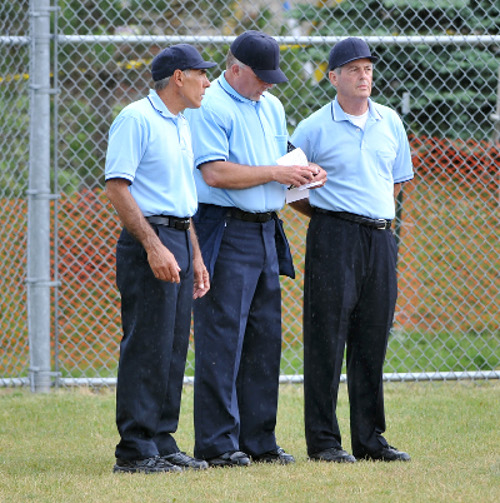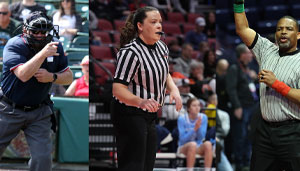How Officials can Learn from Postgame Conferences
By Dave Sheets on September 25, 2015 officials Print

There have been many articles written about conducting a solid pregame meeting with our fellow officials. The advice in these stories is sound and the need for pregame conferences seems to increase over time. It doesn’t matter if it is a middle school game, 30-year veteran partners or any other scenario, a pregame meeting is a requirement.
However, I think we need to give the postgame wrap-up just as much attention. What we can learn from the game just completed can be more educational than all the discussions about what we should do. The postgame meeting shouldn’t take as much time as a pregame and perhaps doesn’t require a formal structure like many officials use before the contest. It has been said, the pregame meeting gets you ready for this game; the postgame gets you ready for the rest of your life.
It does require honesty and insight. The postgame shouldn’t be one of the officials stating, “Well, we were the best team on the court.” There is no value in the only conversation after the contest being, “Can you believe how much the blue team coach complained,” or “I didn’t think number 44 acted like an all-star.”
One of my crew mates is often the instigator of the conversation after a game. Before we are even seated in the locker room he says, “What can we take from this game that will make us better next time?” That usually leads to just a couple of minutes of commentary that may include comments like, “I need go deeper in the outfield on a fly ball,” “I should have stayed deeper in the backcourt on the press,” or “I need to release downfield faster on a punt.”
A postgame discussion can also be about calls officials aren’t sure about. Asking our partners if they agreed with a block/charge call or if they thought we kicked a double play brings good feedback. Often we find we were correct and shouldn’t worry. Other times, we find we missed the call and know we must work harder the next game.
The most challenging part of a postgame meeting is commenting on our partners. While we may ask them for feedback on our performance, not everyone is so welcoming of commentary. However, it makes us all better when we are honest, without being cruel. “Tom, I thought your five second counts were very fast against white.” “Dave, I felt like you were too deep as back judge on obvious running plays.” Those are opinions that can lead to learning and improvement. It is not appropriate to have a laundry list of grievances with any one official, but an item or two offered respectfully is valuable. Remember that good criticism leads to good learning.
A solid pregame meeting is a part of serving the student-athletes well before you step onto the field or court. A solid postgame meeting is part of serving the athletes better the next game. Having a postgame discussion is an idea that works.





